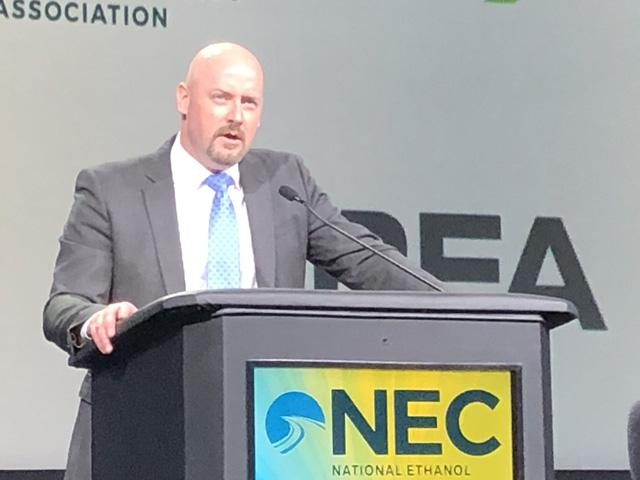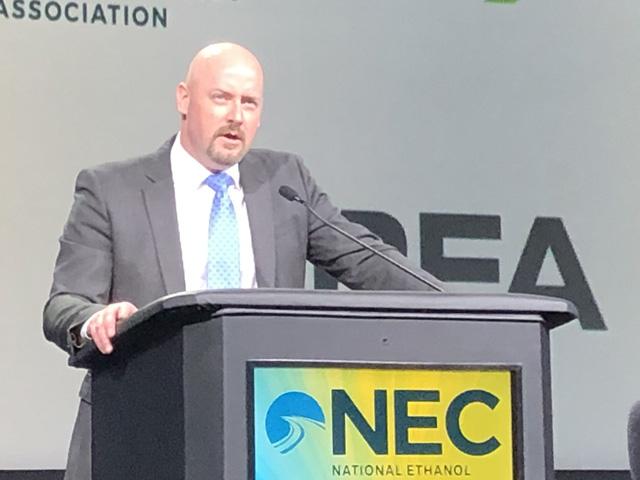Ethanol Blog
RFA's Cooper: EPA's Scientific Advisory Board Downplays Corn Ethanol Climate Benefits
LINCOLN, Neb. (DTN) -- The head of a national ethanol interest group on Thursday called out an EPA scientific advisory board report that seemingly downplays the carbon benefits of corn ethanol.
In a letter sent to EPA Administrator Michael Regan, Renewable Fuels Association President and CEO Geoff Cooper said the SAB made "specious claims" about the climate benefits of the Renewable Fuel Standard and the emissions effects of corn ethanol.
The panel sent to Regan a draft commentary on RFS volume requirements for 2023 and later years.
In the draft the panel writes: "...resolving the scientific question of whether use of corn starch ethanol as a fuel reduces GHG emissions or not, relative to gasoline and diesel, is absolutely central..." to determining whether the RFS offers net climate benefits.
"But this scientific question has been answered," Cooper writes in the letter.
P[L1] D[0x0] M[300x250] OOP[F] ADUNIT[] T[]
"The overwhelming preponderance of scientific analyses and empirical data clearly show that corn starch ethanol significantly reduces GHG emissions relative to the gasoline it replaces. We adamantly disagree with the SAB's statement that 'the best available science' suggests there are 'minimal or no climate benefits' related to substituting corn ethanol for gasoline. Indeed, the best available science shows just the opposite."
Cooper points to research conducted at the U.S. Department of Energy's Argonne National Laboratory. Argonne found the average carbon intensity of corn ethanol to be 52.4 grams per megajoule.
"This is a 44% reduction compared to the carbon intensity of petroleum gasoline blend stock (93 grams CO2e/megajoule, as estimated by Argonne)," Cooper writes.
"The scientists determined that corn ethanol has 'helped the U.S. transportation sector reduce GHG emissions by 544 million metric tons' over the past 15 years. In conclusion, the Argonne researchers found that corn ethanol '...provides significant GHG emission reductions' compared to U.S. average petroleum gasoline and noted that corn ethanol '...can play a critical role in the U.S. desire for deep decarbonization of its economy.' The SAB commentary does not include a single acknowledgement or mention of Argonne's comprehensive research quantifying the GHG impacts of corn ethanol."
In its commentary the SAB cites one study by Lark et al. from 2022.
"While the SAB acknowledges that Lark et al. prompted several scientific critiques and criticisms from their academic peers, the board fails to adequately examine or contextualize those reproaches," Cooper said in the letter.
Cooper said the industry is concerned about the process used by the SAB to write the commentary.
"Without providing any advance notification to the public or opportunity for input, the SAB established a 'RFS workgroup' to evaluate EPA's proposed rule for 2023-2025 renewable volume obligations," Cooper writes.
"The six-person work group included members with expertise and education in psychology, public affairs, human toxicology and other fields unrelated to bioenergy and climate science. No scientists with biofuels industry expertise were invited to participate in the work group; however, the group included the chief scientist from a New York-based environmental lobbying and political advocacy group that has lobbied for repeal of the RFS. We strongly encourage the SAB to do better in ensuring relevant expertise and a balance of perspectives are included in work groups focused on the biofuels policies administered by EPA."
Todd Neeley can be reached at todd.neeley@dtn.com
Follow him on X, formerly known as Twitter, @DTNeeley
(c) Copyright 2023 DTN, LLC. All rights reserved.






Comments
To comment, please Log In or Join our Community .